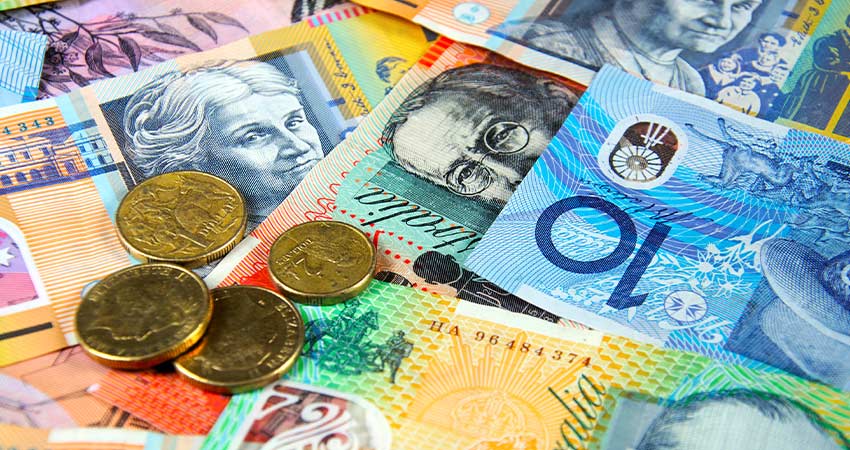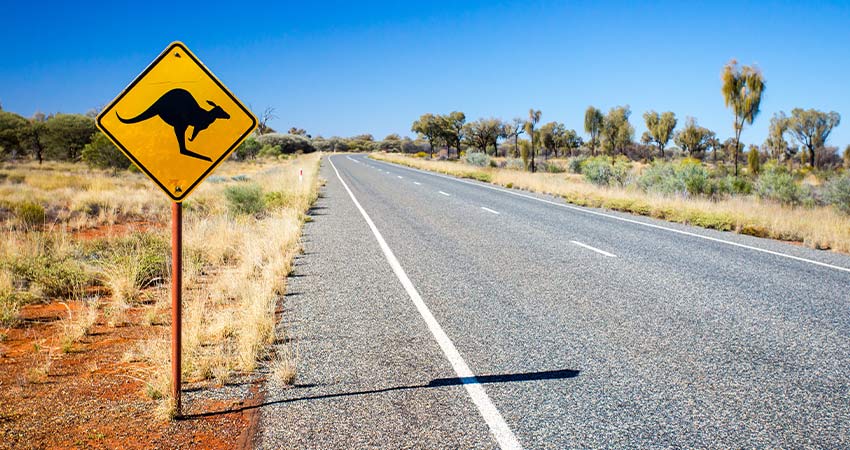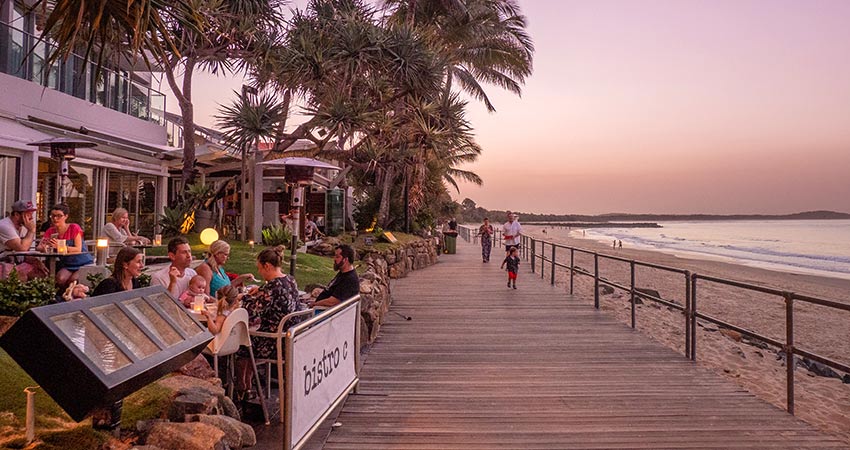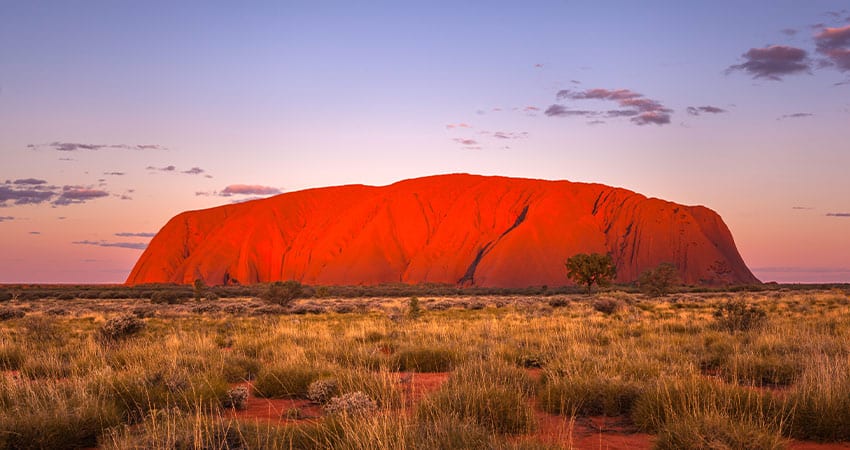Australia is a particular travel joy for those who want to feel renewed, recover their sense of wonder, and fall in love with life again. The cities are beautiful, clean, friendly, and buzzing with culture and remarkable cuisine. Rural areas have the most unique wildlife on earth, and Uluru holds secrets of the pre-dawn Dreamtime. Below are authentic travel tips that will make discovering Australia a pure pleasure.
Money:
The currency in Australia is the Australian dollar (AS), which breaks down to 100 cents(c). All cents are rounded up or down to 5 cents. Australian notes are plasticized to increase their lifespan—paper notes are no longer in circulation and are not considered legal tender. You’ll want to keep small bills on hand—it’s not always easy to break a A$50 or A$100 bill, particularly in rural areas. Several weeks before you leave, it’s handy to stop into your bank and order some AS to have on hand when you touch down. If you don’t have time, there are places in the airport to change your US Dollars to AS—the charge is simply a bit higher than what your bank will charge you.
ATM’s:
ATM machines can be found in most banks as well as tourist and shopping areas. Before you leave home, give your credit card or debit companies a call and let them know you’ll be traveling in Australia. And remember your PIN numbers—a must.
Credit Cards:
All well-known international credit cards and debit cards are generally accepted in Australia. Visa and Mastercard are the most widely used. American Express cards are often accepted in large retail outlets, but smaller shops, cafes, and newsstands may only accept cash. Ask before you buy! Many retailers have something called “tap-and-go” terminals. These are chip readers that dispense cash up to $100 without the need for your PIN number. Tip: Carry the phone number of your credit card company with you, in case the card gets lost. As is true everywhere, when you get into very rural areas (the Outback, for Australia) cash is king, and ATM machines may be few and far between.
VAT Tax:
Australia has a GST (Goods and Services Tax) of 10% that is levied on almost every purchase. Generally, this is included in the price that you see.
Electricity:
In Australia, the power plugs and sockets are type I. This is a flat three-pin adapter. The standard voltage is 220/240 volts, and the standard frequency is 50 Hz. Simply purchase an Australia power/plug adapter for your own plug-in devices before leaving. They are easy to find in stores or online (look under Australia electric adapter), inexpensive, and small. You will also need a voltage converter, also available online at a reasonable price.
Driving:
Drivers must carry their driver’s license and insurance documents. Australians drive on the left side of the road. When you approach a roundabout, yield to traffic coming from the right. (As in the States, pull over for emergency vehicles.) Drivers must pass on the outside, or right-hand, lane. Speed limits and distances are posted in kilometers—1 kilometer equals 2/3 of one mile. The road networks vary greatly in type and services. When there are long distances between towns, fuel up when you see a gas station. Seatbelts must be worn at all times. Children 7 and under must have the proper restraint, a booster seat, for their age and size. Do not use your cell phone while driving unless you have a hands-free device. Texting and talking on the phone without a hands-free device is illegal.
The legal Blood Alcohol limit is .05%.
Speed Limits:
Speed limits are clearly posted. If you’re driving in a city, and there are no speed limits posted, the standard limit is 50km/hr—31 mph. School zones are generally 40 km/hr., but this varies according to State and city. As in the US, simply pay attention to the sign posts. The speed limit outside of urban areas also varies between states. In Victoria, Tasmania, New South Wales, Queensland, and South Australia, the assumed limit is 100 km/hr. In Western Australia and the Northern Territory, the limit is 110Km/hr. and can go up to 130 km/hr on major highways in the Northern Territory.
Take your time and enjoy the astonishing scenery and wildlife!
Driving Distances:
Below are listed examples of common driving distances. We suggest that you keep your driving distance down. You’re on vacation. Relax.
- Melbourne to Sydney: 870 km (540 miles) 9 hours
- Sydney to Brisbane: 911 km (566 miles) 9.5 hours
- Melbourne to Canberra: 662 km (411 miles) 7 hours
- Melbourne to Adelaide: 725 km (450 miles) 8 hours
- Sydney to Canberra: 285 km (177 miles) 3 hours
- Cairns to Townville: 346 km (214 miles) 4.2 hours
- Melbourne to Tasmania: 491 km (305 miles) flight or ferry
GPS:
We strongly suggest use of a GPS. Tell your Authentic Travel Expert you want one when setting up your car rental. If you forget to do that, ask for one at the rental agency desk at the airport. But, it’s far better to plan in advance.
Tipping:
Tipping is not expected in Australia but do leave a tip as a thank you for genuinely terrific service. In restaurants, leave 10% for good service, 15% for exceptional service. For luggage, give porters AU$2.00 / bag. For tours and taxis, give the amount you feel is appropriate for service.
The following are Australia’s Public Holidays:
New Year’s Day; Australia Day (the end of January); Good Friday; Easter Monday; Anzac Day (generally one week after Easter Monday); Christmas; Boxing Day, December 26.
Hours For Shops & Banks:
Hours for shops are generally Monday – Friday, 9:00 am – 5:00 pm. Saturday hours are usually 9:00 am – noon, or 9:00 am – 5:00 pm. Shopping on Sundays is generally available in larger cities and in suburban areas.
Banks are open Monday – Friday, except holidays, from 9:30 am – 4:30 pm.
Smoking, Drugs, & Alcohol:
Smoking and using e-cigarettes are banned in all enclosed public areas as well as certain outdoor public areas. The possession of illegal drugs is prohibited and could result in a prison sentence. The legal limit for Blood Alcohol Content is .05% and is strictly enforced. Random tests are not unusual.
Time Zone:
With a land mass of 2,973,000 sq. miles, Australia is the world’s sixth largest country and has three time zones: Western Standard Time, Central Standard Time, and Eastern Standard Time. Daylight Savings time is observed in New South Wales, the ACT, Victoria, and South Australia from October to March, adding an hour to the time difference. Examples of cities/states and times zones:
- Adelaide (SA) 9.5 hours + GMT
- Brisbane (QLD) 10 hours + GMT
- Canberra (ACT) 10 hours + GMT
- Darwin (NT) 9.5 hours + GMT
- Hobart (TAS) 10 hours + GMT
- Melbourne (VIC) 10 hours + GMT
- Perth (WA) 8 hours + GMT
- Sydney (NSW) 10 hours + GMT
Visiting Sacred Sites and Natural Wonders:
When visiting a church, cathedral, ancient sites, or natural wonders remember you are on sacred ground and show respect. Aboriginal people inhabited Australia 60,000 years ago, and petroglyphs are particularly fragile. Australia expects visitors to keep a clean trail.
Climate:
Because Australia is so large, the climate varies in different parts of the country. (Remember, the seasons are the opposite as those that we have in the States… if you want a great beach vacation to celebrate Christmas, Australia is ideal!) Other than the mountain areas in eastern Victoria and southern New South Wales, you will rarely see snow. The northern part of Australia is tropical—this is the place for ocean and snorkeling adventures. The center of the country has a typically desert climate with hot days and cool nights. Australia has plenty of UV, so bring your sunscreen!
What to Pack:
Pack your electrical adapter, a converter, a copy of your passport and credit or debit cards. (Best to only bring two or three of these, and leave copies at home, too.) Make copies of your health insurance. Keep your meds, important copies of docs, and some cash in one small, convenient bag. Your clothing depends entirely upon which part of the country you’re visiting and when you are visiting. Australia is a relaxed country, but good manners and nice attire are appreciated.
Cell Phones and Wi-Fi:
Free hotspots are available in main towns and cities. Libraries also offer free Wi-Fi as do large shopping areas. Your lodgings generally have Wi-Fi, although, as with anywhere, small towns often have spotty coverage. Before leaving home, contact your cell phone carrier. Most will charge you a relatively small fee, usually $10/day, for making calls back to the US and within Australia on your cell phone. This is very handy.
Emergency Phone Numbers:
Three zeroes (000) is the Australian standard emergency number, and 112 is an international emergency number. Dialing 112 directs you to 000. Directory assistance is 122
Health:
Australia has some of the best medical services in the world. Dial 000 from any part of the country for ambulance assistance. There are 24-hour medical centers in the major cities and doctors that are in, or near, most towns. Look in the yellow pages, or dial directory assistance, checking for “medical practitioners.” For dental emergencies, go to the emergency room of a public hospital. The government has a Health Direct service, 1800 022 222 that provides health information and the details on doctors and pharmacies that are open after hours.
Pharmacies (or chemist shops), just as in the States, are everywhere in large cities and scarce in rural areas. Most pharmacies provide free advice about minor ailments, but your (foreign) prescription can only be filled if it is endorsed by a local practitioner. Brings back-up meds! The Health Direct services can tell you which pharmacies are open after hours. The Health Direct phone number is: 1800 022 222.
Of course, the front desk at your hotel is also a great resource for medical assistance. Australia does not accept Medicare or Medicaid. We suggest purchasing health insurance, a small price to pay for peace of mind.
ID:
You will need your US driver’s license and your passport at the car rental desk.
Hair Dryers:
Hairdryers are generally supplied in our accommodations.
Wash Cloths:
Wash cloths are an American invention, and you will rarely see them in Australia. If this is something you absolutely must have, pack your own.
Australia’s urban scene is alive with vibrant art, music, and cuisine. The sacred antiquity of Uluru, Tasmanian woods and devils, coral reefs, mammals that lay eggs, and trees that shed their bark instead of leaves… Imagine a world that feels brand new!
However you choose to relax and rejuvenate in Australia on one of our exceptional adventures, your Destination Expert can make it happen!














